Opioid abuse is a significant public health crisis affecting millions globally. Spotting the common signs of opioid abuse is tough when they occur in someone you love. You might not want to admit or even think of your loved one struggling with such an addiction, but it is vital to acknowledge the problem to find a solution, which often includes drug addiction rehab.
Understanding Opioid Abuse
Opioid abuse refers to the misuse of prescription or illegal opioids. Common misconceptions about opioid abuse include the belief that it only affects those with weak willpower or those from certain socio-economic backgrounds. However, the truth is that opioid abuse is a complex disease that can affect anyone, regardless of age, income, or lifestyle.
Identifying Common Signs of Opioid Abuse
Being aware of the common signs and symptoms of opioid abuse can make a significant difference in the life of someone struggling with this issue. Here are five signs to look out for:
Changes in Physical Appearance
One of the first signs of opioid abuse is a noticeable change in physical appearance. Individuals abusing opioids may frequently appear drowsy, have constricted pupils, or exhibit rapid weight loss or gain.
Behavioral Changes
Changes in behavior can also indicate opioid abuse. You may observe mood swings, increased secrecy, or withdrawal from social activities. These changes often occur because the individual is trying to hide their drug use or is dealing with the effects of the drug on their mental health.
Negligence of Responsibilities
Neglecting responsibilities at work, school, or home can be a sign of opioid abuse. They may miss deadlines, forget appointments, or fail to fulfill their duties, often as a direct result of their drug use.
Health Issues
Health issues such as regular constipation, persistent nausea, or a slowed breathing rate can be potential symptoms of opioid abuse. In severe cases, opioid abuse can lead to more serious health complications.
Developing Tolerance and Withdrawal Symptoms
Developing a tolerance to opioids and experiencing withdrawal symptoms when not using are key signs of opioid addiction. Individuals may need to consume more opioids to achieve the same effect or suffer from symptoms such as restlessness, insomnia, or bone pain when they stop using opioids.
Opioid addiction rehab programs can help individuals struggling with opioid abuse overcome their addiction and manage any withdrawal symptoms they may experience. These programs offer a range of treatments, including medication-assisted therapy, counseling, and support groups.
How to Help Someone Struggling with Opioid Abuse
Approaching someone who is showing signs of opioid abuse requires sensitivity and understanding. It is crucial to express your concerns without judgment and encourage them to seek professional help. You can help someone by:
-
Offering support and encouragement
-
Educating yourself about opioid abuse
-
Encouraging them to seek professional help
-
Avoiding enabling behaviors
A substance abuse treatment center can provide the necessary resources and support for those struggling with opioid abuse. Remember, even if your loved one is hesitant to seek help, it is essential to continue offering love and support throughout their recovery journey.
The Role of Professional Help in Overcoming Opioid Abuse
Professional help plays a vital role in diagnosing and treating opioid abuse. Treatment options include detoxification programs, medication-assisted treatment, evidence-based therapy, and support groups. Each individual’s journey to recovery is unique, and a tailored treatment plan can provide the best chance of success.
Find Addiction Treatment Now
If you recognize the common signs of opioid abuse in a loved one, remember that help is available. Be sure to reach out to a trusted healthcare professional or substance use treatment center for support and guidance on the road to recovery. With proper care and support, it is possible to overcome opioid addiction and lead a healthy, fulfilling life.

